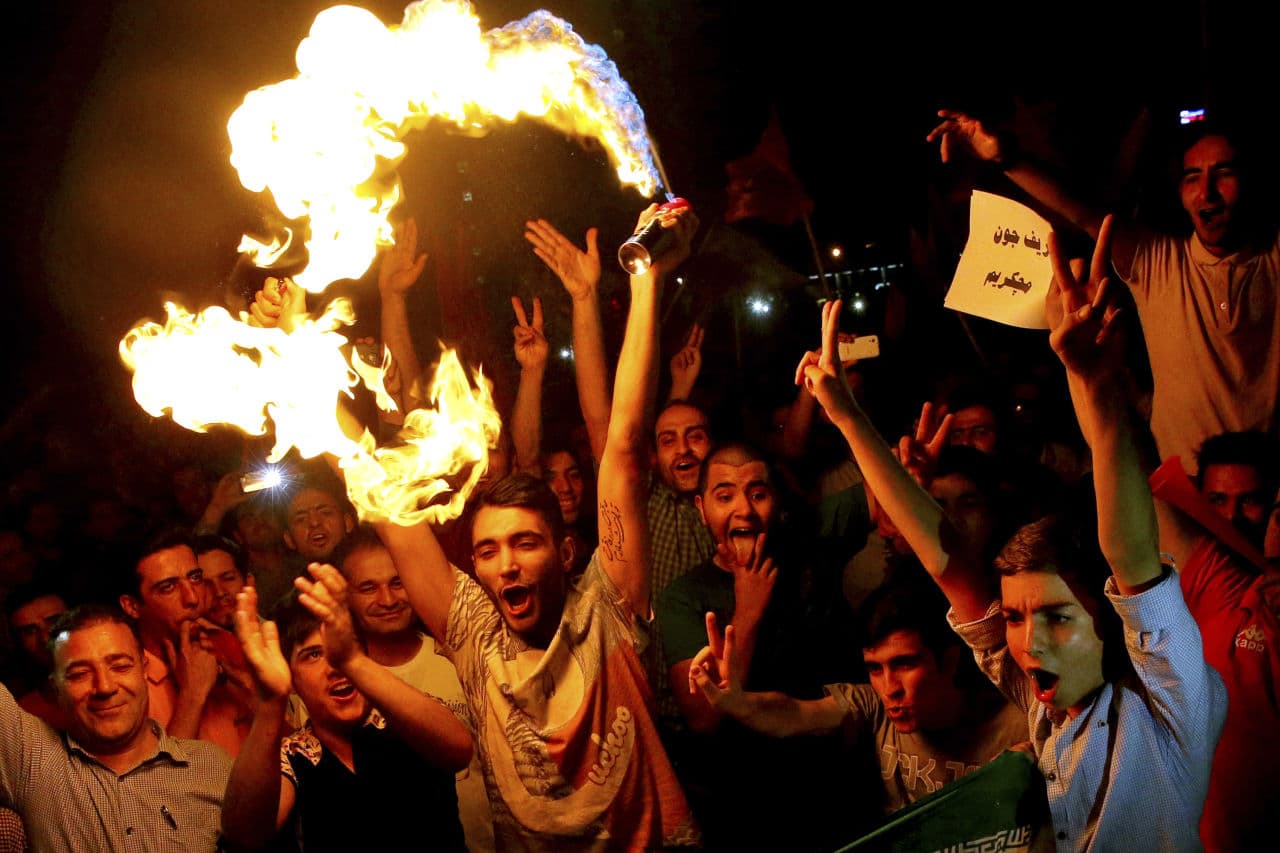Advertisement
The Iranian View On The Nuclear Deal
ResumeWe go inside Iran and the Iran nuclear with scholar-reporter Robin Wright’s on how Iranians see us now.

For decades, the American relationship with Iran has been its most fraught in the world. Now, a nuclear deal has been done. Today, Iran’s parliament took up that deal. Soon, the US Congress will weigh in. Emotions run high among supporters and opponents. Longtime Iran watcher and New Yorker writer Robin Wright was in Vienna as negotiations unfolded. And she’s been recently in Iran, as news of the deal’s progress came in. We know the American debate. What about Iran’s? It’s complicated. Robin Wright’s got a front row view. This Hour, On Point: inside Iran on the Iran nuclear deal.
– Tom Ashbrook
Guests
Robin Wright, journalist and analyst, covering Iran since 1973. Senior fellow at the US Institute of Peace and the Woodrow Wilson International Center. (@wrightr)
From Tom’s Reading List
The New Yorker: Tehran’s Promise: The Revolution’s Midlife Crisis — "Iran’s revolutionaries are aging. Most are in their late fifties, sixties, or seventies. The Supreme Leader, Ayatollah Ali Khamenei, turned seventy-six this month. More than sixty per cent of Iran’s eighty million people are under the age of thirty-five. A baby-boom generation, born after the revolution, doesn’t share all of its priorities."
Vox: How Iran's economy could blow up the nuclear deal: "The way the Iran nuclear deal works is designed to be pretty straightforward: It places severe restrictions on Iran's nuclear program to keep the country from developing a bomb, imposes heavy inspections and monitoring to make sure Iran is holding to its commitments, rewards Iran with sanctions relief, and then holds the threat of reimposing sanctions over Iran's head to incentivize it to comply.The reason this seems like a good arrangement is that it fits everyone's political and economic incentives."
The Wall Street Journal: An Expert View: Accept the Deal but Move to Contain Iran: "Accept the deal, imperfect as it is, as the best option available now on the nuclear front and promptly move onto a “parallel track” strategy of containing Iran’s regional ambitions, with a heavy dose of U.S. leadership. The theory here is that the new agreement, while it certainly doesn’t end Iran’s nuclear program, accomplishes its core goal of preventing Iran from developing a nuclear weapon over the next decade."
This program aired on July 21, 2015.